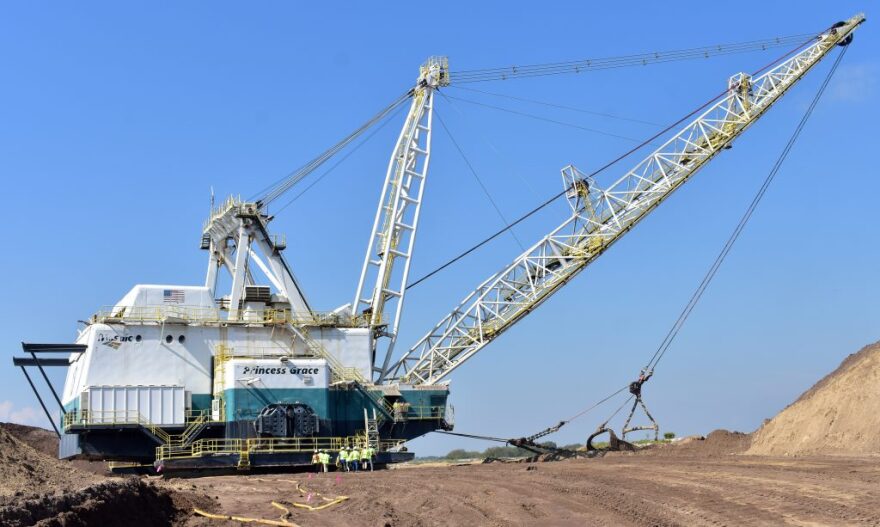Plans to build a test road in Polk County using waste byproducts from phosphate mining may be running into a roadblock.
An environmental advocacy group on Wednesday sued the U.S. Environmental Protection Agency to stop the mining company Mosaic from building the roughly milelong road at its New Wales Mine in Mulberry.
The lawsuit , filed by the Center for Biological Diversity, claims the use of phosphogypsum would expose workers to increased levels of radon gas, which can cause cancer from prolonged exposure.
In December, the EPA gave Mosaic permission to construct the road using up to 1,200 tons of phosphogypsum.
RELATED: Approval given to allow a test road using phosphate waste to be built
Ragan Whitlock, an attorney for the group in St. Petersburg, said the federal agency "reversed course on its long-standing policy that the use of phosphogypsum in road construction creates a cancer risk to the public that is unacceptable.”
“And in doing so, the EPA tripled the allowable cancer risk, which directly contradicts the Clean Air Act's requirements," said Whitlock, referring to the 1970 law that authorizes the agency to regulate air emissions.
“And in evaluating a project that's proposed that deals with hazardous air pollutants, of which radon gas is, radon gas creates cancer risks,” he said. “In doing so, the EPA must analyze a variety of different pathways that can include the pathway of cancer risk to the nearest resident, the cancer risk to utility workers who in this case would be actively handling the hazardous material while they construct the road, and others. And the EPA here at every turn, attempted to downplay the cancer risks and avoid analyzing others."

Mosaic has said the project would be one way to whittle down the state’s roughly two dozen gypstacks, which have caused several environmental catastrophes in recent years due to spills into waterways.
Whitlock said it wouldn't put a dent in the number of gypstacks, where the byproducts are stored.
“There are more than 1 billion tons of phosphogypsum stored in gypstacks across the state, and the industry makes 40 million tons every single year,” he said. “Whatever amount is paved into roadways will only be a drop in that massive, massive well.”
RELATED: Florida wants to more than double size of Mosaic’s ‘radioactive roads’ plan
Gypstacks have been blamed for polluting Florida's waterways, including a 2021 leak at Piney Point in Manatee County that resulted in about 215 million gallons of polluted water being released into Tampa Bay.
In 2020, the EPA moved to allow the use of phosphogypsum in roads, but after backlash from environmental groups across the country, the agency rolled back its decision in 2021. Many other countries around the world use it in road beds.






